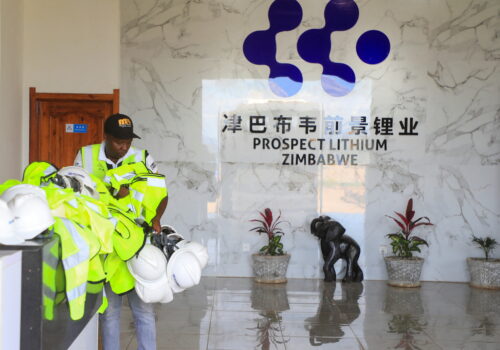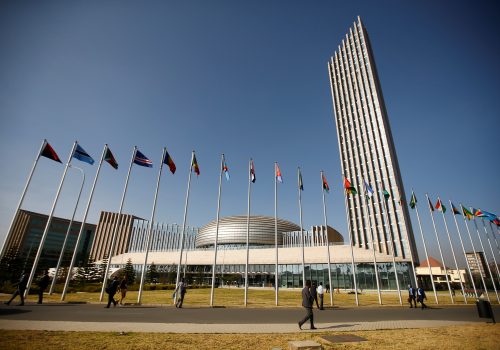Africa is at the forefront of the digitalization wave. From bustling cities to remote villages, the rapid adoption of broadband internet and mobile-enabled transactions continues to reshape economies and lives across the continent.
Figures put together by the World Bank illustrate this surge: between 2019 and 2022, over 160 million Sub-Saharan Africans gained broadband access. From 2016 to 2021, internet users in the region increased by 115 percent, and from 2014 to 2021, 191 million people made or received digital payments.
While these digital advances are promising, they also come with significant risks in the form of cyber vulnerabilities. Threat actors—individuals, organized groups, and even countries—are becoming increasingly sophisticated and are propelling a rise in cybercrime. In addition, digital systems can be compromised by unintentional acts and errors, as seen in the recent CrowdStrike incident, in which a single corrupted software update triggered a chain reaction, affecting multiple sectors and regions.
International institutions and governments are becoming increasingly aware of this reality, driving the development of cyber policies across Africa and beyond. Governments of countries such as South Africa, Kenya, and Mauritius have taken early steps with national frameworks, while regional actors (notably the African Union) and global organizations such as the International Criminal Police Organization have introduced strategies and initiatives to strengthen defense efforts across the continent.
While these initiatives are important, grand strategies and policies often lack practicality, especially for African firms with limited capacity. In resource-constrained environments, core and basic practices are often easier to achieve than comprehensive frameworks. Thus, to foster a more secure continent, organizations engaging in the digital sphere—including businesses, nongovernmental organizations, government bodies, and more—should first be encouraged to implement basic cybersecurity measures to identify, protect, and recover critical assets.
Despite the increasing use of advanced and complex technologies like artificial intelligence, basic security measures remain surprisingly effective at diminishing the likelihood of cyber threats and mitigating their impact. A significant portion of cyberattacks can be prevented through the implementation of fundamental cybersecurity measures, as shown by the Verizon Data Breach Investigations Report and Microsoft Digital Defense Report. By implementing basic safeguards and preparing for recovery when critical assets are compromised, African organizations and corporations of all types can greatly diminish the impact of cyber threats:
- Create a comprehensive inventory of assets: The foundation of effective cybersecurity lies in knowing what to protect. Organizations should inventory all systems, devices, and data assets. They should document relevant data elements to facilitate categorization, risk assessment, and prioritization. Outdated or unauthorized systems are common in remote offices, making a thorough inventory crucial.
- Limit access rigorously: Organizations should restrict system access to essential personnel and enforce multi-factor authentication. In Africa, where mobile devices are often the primary means of internet access, secure authentication is especially important.
- Devise an application whitelist: It is important to allow only approved software in systems, as doing so prevents the execution of unauthorized or malicious programs. This is particularly valuable in regions of Africa where pirated software is prevalent and users might be tempted to install unauthorized applications due to resource constraints. Only allowing approved software would also reduce risks associated with unauthorized or outdated software.
- Standardize security configurations: Organizations should enforce uniform security settings across systems, which would minimize vulnerabilities and simplify management, ensuring consistent protection even in remote locations.
- Proactively deploy patches: It is critical to promptly address software vulnerabilities systematically with patches. In areas with limited connectivity, creative solutions for distributing and applying patches (such as using local caching servers or scheduling updates during off-peak hours) can help ensure updates are applied.
- Develop robust plans for backups and recovery: Developing, regularly updating, and testing recovery plans tailored to the most critical threat scenarios is essential for minimizing downtime when a disruption occurs. Organizations should consider both on-site and off-site backup solutions, taking into account local regulations and data sovereignty issues that may affect where data can be stored.
Governments play a crucial role in fostering the widespread adoption of cybersecurity practices. They can leverage various policy tools to incentivize organizations, especially small and medium-sized enterprises, to prioritize cybersecurity. Tax incentives for cybersecurity investments can make implementation more financially viable for both local and foreign companies operating within the country. These incentives could include tax credits for cybersecurity expenditures, accelerated depreciation for security-related hardware and software, or reduced corporate tax rates for companies meeting certain cybersecurity standards. By extending these benefits to foreign investors, governments can also attract international expertise and capital to bolster the country’s cybersecurity infrastructure.
The basic cybersecurity practices listed above not only protect against common threats but also bolster organizational resilience, drive innovation, and contribute to a more secure digital ecosystem. They are practical and balance immediate needs with strategic goals, making robust cybersecurity more accessible. By laying this foundation, African organizations of all sizes can build their cybersecurity programs, contributing to a safer and more resilient digital world.
Yasmine Abdillahi is the executive director for security risk and compliance and the business information security officer at Comcast.

The Africa Center works to promote dynamic geopolitical partnerships with African states and to redirect US and European policy priorities toward strengthening security and bolstering economic growth and prosperity on the continent.
Further reading
Mon, Sep 30, 2024
Could the United States’ future liftoffs take place in Africa?
AfricaSource By
By working together on expanding the roster of rocket launch sites available to the United States, Washington and its African partners can set a global standard for responsible space exploration.
Mon, Sep 9, 2024
The strategies driving the players in competition for Africa’s critical minerals
AfricaSource By
As the race for Africa’s critical minerals continues, the United States should rally its allies and partners around a common vision backed by democratic values.
Tue, Apr 2, 2024
Why Africans hold the future of global democracy in their hands
AfricaSource By Rama Yade
By the end of 2024, the face of political Africa will—theoretically—no longer be the same. With nineteen elections scheduled this year, the continent will see presidents leave who were elected more than ten years ago (in Senegal and Ghana), uncertain civilian transitions (in Chad, Mali, and Burkina Faso), high-stakes elections (as in South Africa), and strongmen hanging on (in Tunisia and Rwanda).
Image: Mathieu Thomasset / Hans Lucas via Reuters



